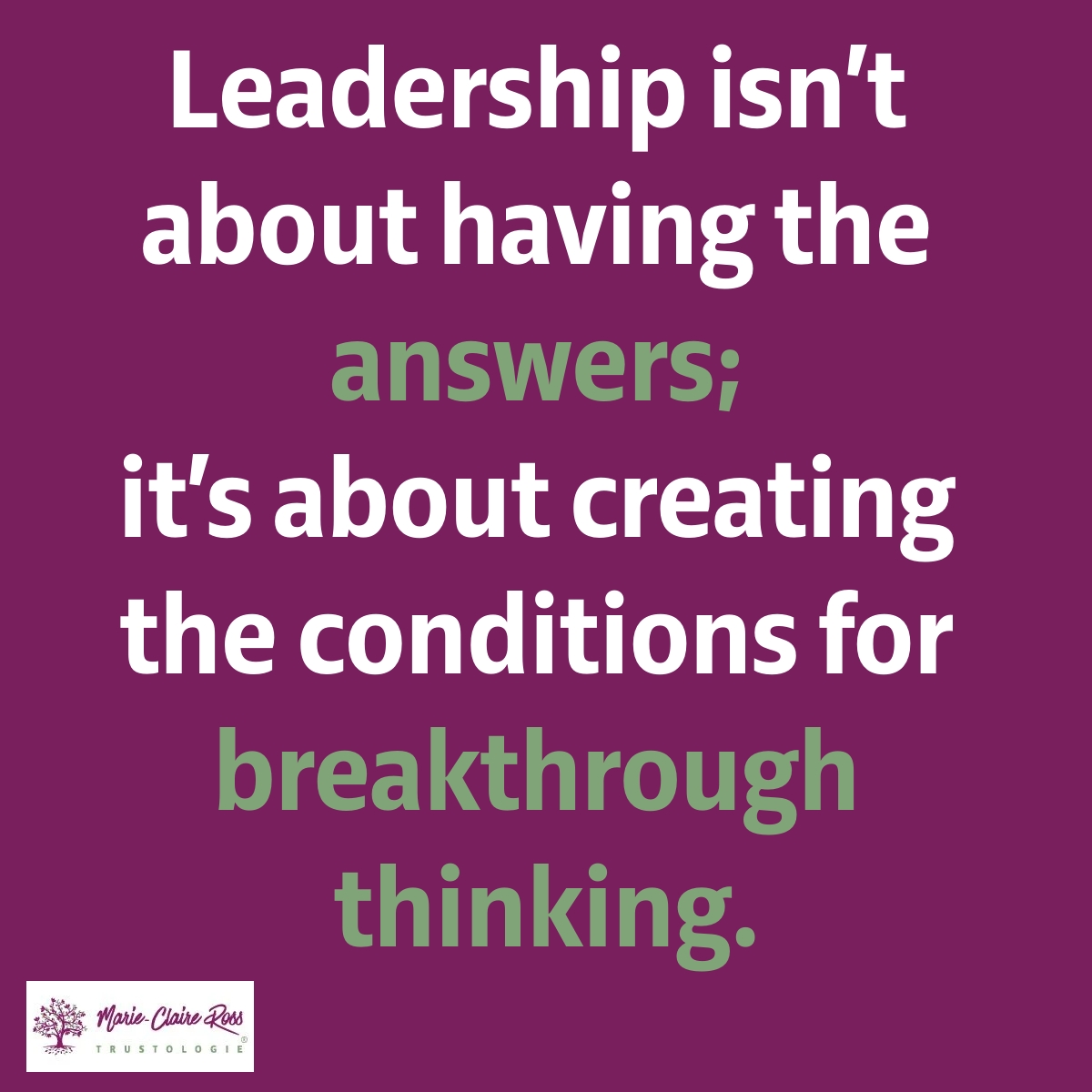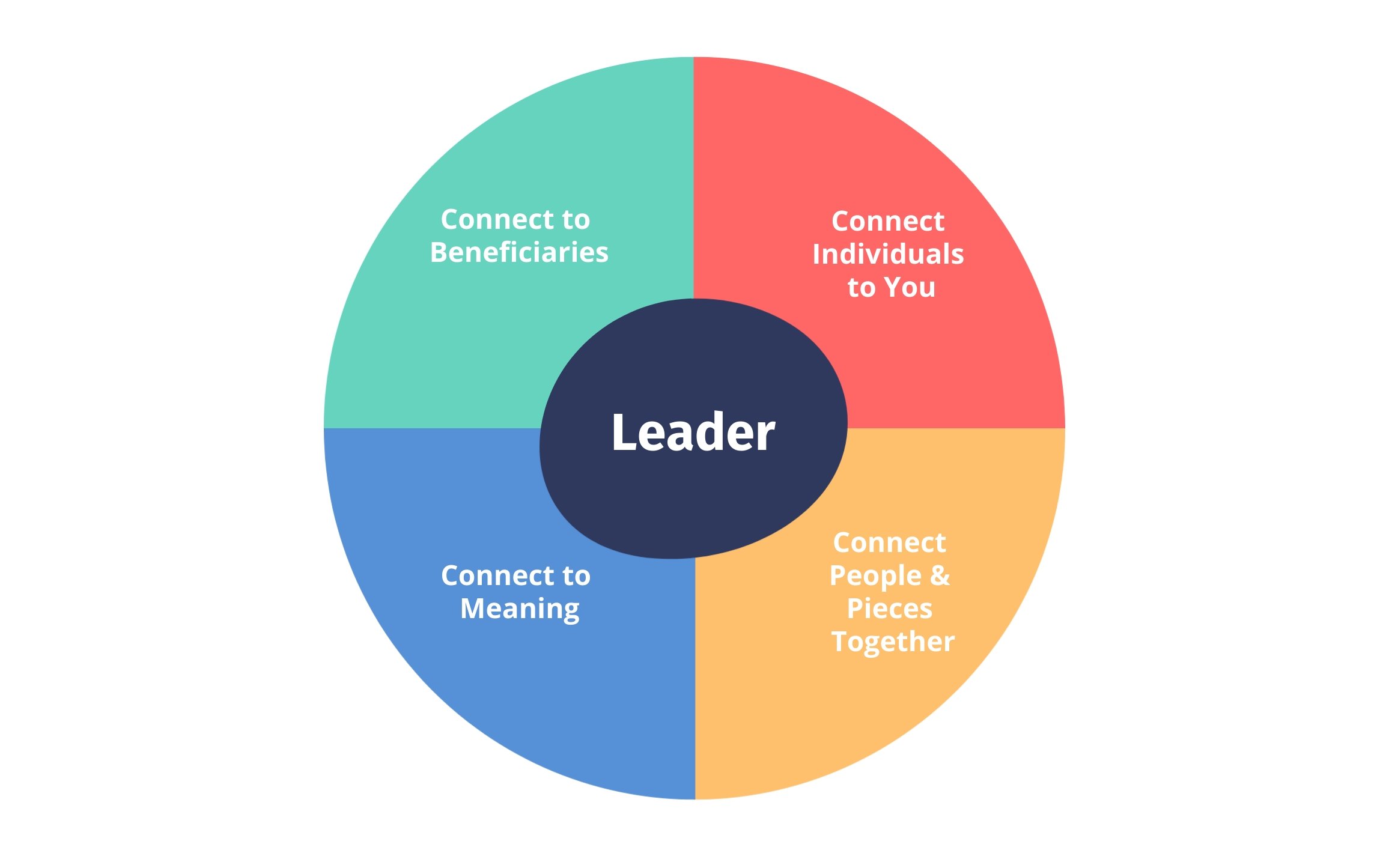8 min read
Beyond the "Why": 5 Coaching Secrets to Unlock Curiosity in Leadership
When my daughter was 17 months old, she discovered a superpower: the word “Why?”For the next two years, it was her response to almost everything.
Develop leaders, strengthen executive teams and gain deep insights with assessments designed to accelerate trust and performance.

Transform how your leaders think and perform with keynotes that spark connection, trust and high-performance cultures.

Explore practical tools, thought-leadership and resources to help you build trusted, high-performing teams.

Trustologie® is a leadership development consultancy founded by Marie-Claire Ross, specialising in helping executives and managers build high-trust, high-performing teams.


If you're like most people, you woke up on New Year's Day tired, groggy and maybe hungover. But also with some sort of goal that you had proclaimed you would work on.
Studies show that 60% of people make New Year's Resolutions each year, but only a paltry 8% achieves them.
Where a lot of us go wrong with our well-meaning goals is that they're a bit vague or not specific enough such as "be more healthy" or "go to the gym" (which by the way were in people's top 10 goals in 2020 according to Polly).
But there is another more important reason why we fail so miserably at our annual goals. We are focusing on the wrong thing.
It's culturally accepted that if we want to get better at something, we need to set goals. As James Clear, the author of Atomic Habits, says in his book, problems arise when we spend our time focusing on a goal, but not on the system to achieve them.
Underlying this issue is that we believe we need to change our results. But they're not the problem. The real issue is the actions we create to achieve our results. In other words, whether we consider and design the systems or daily habits to achieve the goal. Typically, when we focus on a particular goal, we are solving the problem at the result level. It's a temporary fix. What we need to do is to solve problems at the system level.
So say your goal is to go to the gym. You might do that every day for the first week in January, but then there's too much friction. You sleep in, someone invites you to their holiday house for the day or whatever. Life gets in the way. To control for that you have to design a robust system. That is "I will wake up at 6am every weekday and go to the gym for 30 minutes." The trick is creating a system that you enjoy and reduces the friction. For some people, that might mean designing a habit to go to the gym after work or planning a 10 minute session rather than an hour.
Goal setting is binary; creating an unhelpful “either-or” conflict. Either you achieve your goal and you’re a success or you don’t and you’re a failure. Why so many people fail so miserably when it comes to new goals is that they fail to design a system that works for them. At the first failure, they give up (and then feel bad about themselves). A systems-first approach is the antidote. A system where you feel good about yourself anytime the system is running - not because of achieving a vague goal. In other words, going for 10 minutes is still an achievement as opposed to not going at all.
A systems-based approach to goals is also critical in the workplace.

8 min read
When my daughter was 17 months old, she discovered a superpower: the word “Why?”For the next two years, it was her response to almost everything.

11 min read
I have a friend who often finds herself at the mercy of her emotions. Recently, she called me to rehash a confrontation she’d had with a group of...

9 min read
True leadership presence isn’t a performance or a set of charisma hacks; it is the felt experience of who you are being in the room. By cultivating...

Did you know that every fifth of a second your brain is scanning the environment to make sure you are safe? We are wired to seek safety and regularly...

There has been a lot of talk lately about The Great Resignation.A global trend that is seeing a significant number of employees leave their job...

Workplaces tend to have lots of interdependencies, complexity and unknowns that change daily.High achievement leaders provide their team with ...